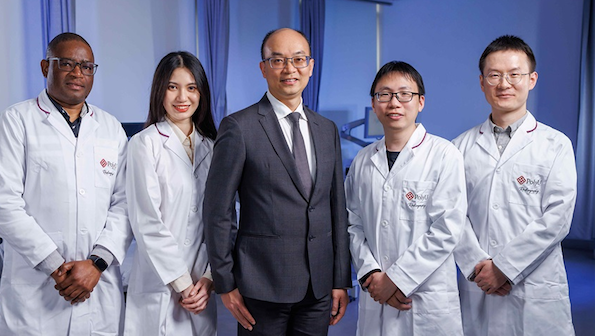
A team of scientists at the Department of Health Technology and Informatics at the Hong Kong Polytechnic University (PolyU), in collaboration with The Fifth Affiliated Hospital of Sun Yat-sen University, has invented Smart-CKD (S-CKD), a non-invasive computer-aided diagnostic tool. It integrates ultrasound data and selected clinical variables to provide clinical insights and assesses the risk of moderate-to-severe renal fibrosis progression in chronic kidney disease (CKD) patients with a promising diagnostic efficiency of 80%.
This device offers a cost-effective solution for guiding patient management, thereby contributing notable clinical advantages. By leveraging machine learning, S-CKD integrates three pivotal clinical parameters - age, ultrasonic renal length and end-diastolic flow velocity of the interlobar renal artery, to assist medical practitioners in assessing renal fibrosis risk in CKD patients during routine clinical practices. It plays a crucial role in guiding treatment decisions and improving patient prognosis. S-CKD is accessible through an online web-based platform or in offline document-based format, making it a user-friendly auxiliary instrument for flexible clinical applications.
The researchers plan to conduct further prospective clinical research on S-CKD, utilising PolyU’s innovative medical technology and facilities in collaboration with medical institutions in the Greater Bay Area and Hong Kong partners.




